A barrage of reactions has greeted the much-vaunted UN climate change summit that came to a close at the weekend in Lima, the Peruvian capital city.

After two weeks of consultations and negotiations, the global forum, which was expected to produce a direction towards a new climate agreement scheduled for endorsement next year, ended with delegates at the gathering expressing mixed feelings over the outcome – the “Lima Decision”.
While some believe that there is now a far clearer vision of what the draft Paris agreement will look like as delegates prepare for the next round of negotiations in Geneva, others describe the attitude of negotiators as ‘shoe-gazing’, one lacking in seriousness and urgency.”
The Climate Action Network (CAN) states: “All eyes will turn to the leaders of the governments who have signed off on an outcome at the UN climate talks in Lima which neither reflects the growing public support for the ongoing transition from fossil fuels to renewable energies nor the urgency to accelerate this transition.
“The Lima Decision reaffirmed that governments are now on the spot to put the individual climate pledges on table in the first half of next year, that will form the foundations of the global climate agreement due in Paris next December, but some of the big issues that have been plaguing the talks for years were shirked and could cause headaches later on.
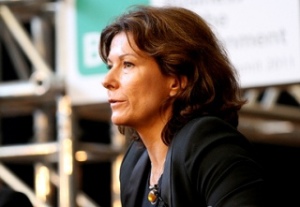
“When it comes down to it, these talks shows governments are disconnected from their people who are worried about climate risks and want a just transition to boost our economies, deliver jobs and strengthen public health. Increasingly domestic issues, whether they are elections or decisions about major projects such as the KeystoneXL pipeline in the US and the Galilee basin in Australia, will be seen as a country’s intention on climate change.
“While governments were able to hide in Lima, they won’t have that luxury in Paris where the world will be expecting them to deliver an agreement, not shoe-gazing.
“In a positive contrast, negotiators here in Lima were in sync with the emerging consensus around the world that we need to phase out fossil fuels, illustrated by this phaseout surviving as one of the options listed in the current list of options for the Paris agreement. Governments need to get to real work at the next UN climate session in February, in Geneva, to convert the options into plain English, legal negotiating text.”
Strategy and Communications Director of 350.org, Jamie Henn, adds: “Negotiators failed to build on the momentum coming into these talks. Over the past year, hundreds of thousands of people have taken to the streets to demand climate action – millions more will join them in the year ahead. Politicians can either ride that wave, or be swept away by it.
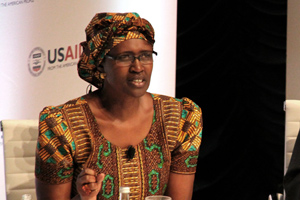
“With the impacts of climate change already being felt in vulnerable communities around the world, the need for immediate action could not be clearer, and yet rich countries are still dragging their feet on everything from finance to emissions reductions.
“We were pleased to see around 100 countries support the goal of phasing out carbon emissions by mid-century. The goal’s inclusion in the draft text is a win for the fossil fuel divestment movement and will add momentum to that growing campaign. But action must begin now, not after decades of delay.
“We must continue to take on the biggest barrier to progress: the fossil fuel industry. During COP20, more than 53,000 people call on the UN to ban fossil fuel industry lobbyists from the climate talks. We know that companies like Chevron and Shell are working behind the scenes to block action. They don’t deserve a seat at the table when they’re trying to burn it down.
“These climate talks have shown a clear disconnect between the negotiations and the global movement offering real, immediate solutions to the climate crisis. Regardless of the outcome falling short, the movement continues to grow unabated.”
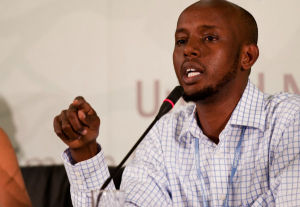
Samantha Smith, Leader, WWF Global Climate and Energy Initiative, says: “Governments crucially failed to agree on specific plans to cut emissions before 2020 that would have laid the ground for ending the fossil fuel era and accelerated the move toward renewable energy and increased energy efficiency. The science is clear that delaying action until 2020 will make it near impossible to avoid the worst impacts of climate change, yet political expediency won over scientific urgency. Instead of leadership, they delivered a lackluster plan with little scientific relevancy.”
Winnie Byanyima, Executive Director of Oxfam International, declares: “There is still a vast and growing gulf between the approach of some climate negotiators and the public demand for action. This outcome can only be seen as a call to action for people around the world. Governments will not deliver the solutions we need unless more people stand up to make our voices heard. We must continue to build a stronger movement to counteract the narrow interests that are preventing action.”
Mohamed Adow, Senior Climate Advisor at Christian Aid, notes: “The talks took place in the wake of worsening climate impacts hitting communities around the world, like Typhoon Hagupit in the Philippines which has highlighted to ensure communities can adapt and to providing support for the loss and damage they experience when they can no longer adapt.

“There is an elephant in the room at these negotiations – we’ve not managed to entice it out. Working out how to fairly share the workload of tackling climate change between developed and developing countries has become the major stumbling block on the road to Paris.”
Lack of vision among countries and missed opportunities in the Lima climate talks have undermined the process towards a global agreement on climate change in 2015, international humanitarian and development organisation ACT Alliance has said.
The group adds: “After two weeks of fruitless negotiations among countries on how to steer clear of irreversible damage from climate change, parties lacked a sense of urgency, refusing to step out of their comfort zones, resulting in no progress on any aspects of the decision text.
“It said the agreement reached is just a symbolic greeting to the Peruvian COP presidency, and a commitment to give the negotiations a new try at the next session of climate talks in February.
“Many had expected the talks to result in some of the groundwork towards the Paris agreement, including a finance roadmap toward 2020 and clarity on the information countries will have to submit along with their Intended Nationally Determined Contributions (INDCs). However, the guidance on INDCs is still unclear, despite expectations for submissions to start in March 2015.
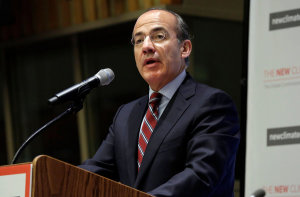
“But while a number of countries expressed openness on the issue of adaptation there was no progress on finance, with the Alliance highlighting a missed opportunity with the Green Climate Fund not fitting into a bigger picture of being linked to the roadmap to 2020 and beyond.
“While on the policy level there has been little progress, the Alliance, which works with communities in over 140 countries, said that on the political level engagement by concerned citizens is growing.
“In September more than 400,000 people turned out for the People’s Climate March in New York ahead of the UN Climate Summit, and around 15,000 people marched the streets of Lima for climate justice.”
Mattias Söderberg, co-chair of the ACT Alliance Advisory Group on Climate Change Advocacy, emphasises: “There is a real possibility of failure in this process. The Lima talks have been clouded by missed opportunities: a missed opportunity to build trust among parties, with now even more division along north south lines; missed opportunities on finance since developed countries were not willing to discuss pre or beyond 2020; and a missed opportunity around ambition, which simply fell off the radar completely.
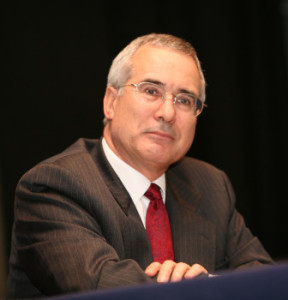
“It is very clear that while no country has had the courage to step up and take accountability for its role in climate change, in communities across the globe momentum for change is growing. What policy makers seem to miss is that these negotiations are about people – about who will survive and who will be forgotten. Yet nothing in the decision today is going to change anything in terms of the support governments give to developing countries to help those communities in need.
“This mobilisation is happening on the ground and governments that don’t get on the boat are going to be left behind. We won’t leave the poor and vulnerable people to fight climate change on their own. Some governments here may have, but we will not.”
There were, however, some expression of hope on the outcome of the global conference.
Felipe Calderón, former President of México and Chair of the Global Commission on the Economy and Climate, submits: “This week in Lima we have made progress towards an international agreement that will send a clear signal to businesses and investors. There is still considerable work to be done. But I am encouraged that countries, all around the world are beginning to see that it is in their economic interest to take action now.
“In Lima we have seen progress across the fundamental building blocks of our economies. Seven Latin American countries, including Mexico, have pledged to restore life to 20 million hectares of degraded land by 2020. Restoration will reduce carbon while providing new economic opportunities, especially for poor people.
“A new standard for measuring carbon emissions in cities has been set. This will drive cities to go further and to pursue compact and connected urban growth. More than $10 billion has been pledged to the Green Climate Fund, which was formally established in Cancun in 2010 – this will help poorer countries adapt and shift towards better development.

“Now other countries, cities and business must build on these commitments. Action should not be limited to those in Lima. Decision-makers in all parts of the economy can reinforce this effort by making fundamental changes and smart choices. The New Climate Economy report has shown that they have an opportunity to create jobs and reduce poverty, while reducing the carbon emissions that threaten our future. The road to Paris has begun in Lima. We must continue to work towards a strong international agreement. Such an agreement can drive innovation and stimulate the investment needed to create better growth and a safer climate.”
Nicholas Stern, Chair of the Grantham Research Institute on Climate Change and the Environment and ESRC Centre for Climate Change Economics and Policy at London School of Economics and Political Science, and President of the British Academy, discloses: “This is an important step towards a new agreement at the climate change summit in Paris in December 2015, but it still leaves a number of important issues to be worked out between countries over the next 12 months. There has been a constructive atmosphere in Lima, and the Peruvian Government deserves great credit for creating such a positive environment for the negotiations. The countries of the world are increasingly recognising the urgency of the action required to tackle the immense risks of climate change, but must focus on the big issues of scale of action and of building mutual confidence and support in the months before Paris.
“It is vital that countries put forward before the Paris summit intended nationally determined contributions that are both ambitious and credible. However, it is already clear that the scale of action to control and reduce annual emissions of greenhouse gases will collectively not be consistent with a pathway that will mean a reasonable chance of avoiding dangerous global warming of more than 2 centigrade degrees above pre-industrial level. That means countries must continue to explore opportunities to increase emissions cuts. And they must build into the Paris agreement arrangements for moving purposefully thereafter to increase the scale of action.
“All countries must continue to engage in a collaborative way with each other to build mutual confidence. Rich countries must accept the responsibilities that are associated with their greater wealth and historical contribution to the rise in greenhouse gas levels in the atmosphere. They must help in tackling the effects of climate change that are already with us. And they should also work to create and unlock much greater public and private investments in clean economic growth in the developing countries, and not just re-label overseas aid budgets. There is great potential for sustainable and inclusive growth across the world. Investments in clean development hold the key to both managing the risks of climate change and overcoming poverty.”
Jennifer Morgan, Global Director, Climate Program, World Resources Institute, states: “A global climate agreement is now within reach. While more hard work remains, negotiators found common ground on the most pressing issues. This emerging agreement represents a new form of international cooperation. “In the coming months, countries must propose their climate action plans and hammer out the details of the core agreement. Momentum has been growing for global climate action, with the US, China, and EU putting their emissions targets on the table early. Now others countries need to step up to the plate.
“Most importantly, in Lima countries agreed on consolidated negotiating text that delegates will build upon next year. Countries also decided in detail how they will present their national contributions by March 2015 or soon after. As contributions are put forward, peer pressure will grow for countries to be as transparent and ambitious as possible. World Resources Institute will conduct analysis of country action plans based on their level of transparency, ambition and equity.
“The most inspiring development in Lima was an outpouring of support for a long-term effort to reduce emissions. Over a hundred countries now advocate for a long-term mitigation goal. This would send a strong signal that the low-carbon economy is inevitable.
“Support grew for establishing regular cycles to review and strengthen countries’ actions to curb emissions, adapt to climate change and support low-carbon growth. These cycles of improvement are critical to ensure the Paris agreement drives climate action for not years but decades to come.
“Progress on the Green Climate Fund was a bright spot, with countries’ exceeding the $10 billion goal for 2014. These funds will jump start a transition to a low-carbon and climate-resilient economy. It will be important to identify additional sources of funding that are on par with the scale of the climate challenge.
“We cannot afford to let up. With continued leadership and trust, the world can unite around a climate agreement that will reduce climate risks and open new economic opportunities. This vision is within sight, but it’s up to all countries to make it a reality.”
By Michael Simire
